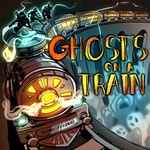The Lavender Tavern – Details, episodes & analysis
Podcast details
Technical and general information from the podcast's RSS feed.

The Lavender Tavern
Jonathan Cohen
Frequency: 1 episode/14d. Total Eps: 19

Recent rankings
Latest chart positions across Apple Podcasts and Spotify rankings.
Apple Podcasts
🇫🇷 France - drama
04/05/2025#98🇫🇷 France - drama
03/05/2025#90🇫🇷 France - drama
02/05/2025#85🇫🇷 France - drama
01/05/2025#81🇫🇷 France - drama
30/04/2025#77🇫🇷 France - drama
29/04/2025#53🇫🇷 France - drama
28/04/2025#38🇫🇷 France - drama
27/04/2025#26🇫🇷 France - fiction
27/04/2025#95
Spotify
No recent rankings available
Shared links between episodes and podcasts
Links found in episode descriptions and other podcasts that share them.
See all- https://www.faustiannonsense.com/
117 shares
- https://www.faustiannonsense.com
22 shares
- https://www.lavendertavern.com/
6 shares
RSS feed quality and score
Technical evaluation of the podcast's RSS feed quality and structure.
See allScore global : 83%
Publication history
Monthly episode publishing history over the past years.
Boulder in the Sky
Season 1 · Episode 18
lundi 30 août 2021 • Duration 10:04
For two powerful wizards, there is only one thing stronger than love: stubbornness.
Final episode of Season 1! If you like what you've heard, leave a review on Apple Podcasts or Podchaser.
Written by: Jonathan Cohen for the Lavender Tavern.
Narrated by: Ben Meredith
A Faustian Nonsense production.
Auerbach's Destiny / Memorial
Season 1 · Episode 17
lundi 23 août 2021 • Duration 21:06
Auerbach's Destiny: Some people are born to greatness, destined to be saviors of their land. Others...not so much.
Memorial: A cottage in the woods built for two. Three perfect coneflowers. And a single, fresh grave.
Written by: Jonathan Cohen for the Lavender Tavern.
Narrated by: Ben Meredith
A Faustian Nonsense production.
The Golden Door, Part 2
Season 1 · Episode 8
dimanche 14 février 2021 • Duration 35:16
In the small town of Wolfwater, every door was always open to Finn, except for one...
Finn can go through any door in the town of Wolfwater except one...because he's too fat to fit through it. But Finn is determined to find out what's behind the golden door. No matter what.
Part 2 of 2.
Written by: Jonathan Cohen
Narrated by: Joe Cruz
A Faustian Nonsense production.
Content warning: disordered eating, body image
To read the full transcript of this episode, go to https://thelavendertavern.captivate.fm/episode/the-golden-door-part-2
Transcript
Finn got little sleep that night as he paced the kitchen, taking notes and writing down ideas, and cooking and tasting bits and samples of food. Eating the food helped him to think, to sharpen his mind.
He missed Celine, missed her laughing, dancing conversation and how she challenged him to be better than he was. She was ambition personified, unusual for an inhabitant of Wolfwater. Celine had been a singer since she was a child, but now she was famous in the town, and fame meant performances and planning and trips to other towns and villages.
He took one night off from planning his feast and went to hear her perform at an alehouse in the center of town. It was a shabby, disreputable place propped up by drunkards and slatterns, and Finn was surprised that his childhood friend should sing at such a venue.
But when Celine came out from behind the curtains onto the small raised stage, he forgot about the stale smell of ale and the acrid tobacco haze that hung in the air. She wore a simple black shift as if it was a grand dress from a distant city. Her hair was done up in curls, and gleamed in the lights of the stage. She elevated the alehouse and those who were in it, and Finn was glad to have come.
Celine spotted him as she took her place; he saw the smile of recognition, the little nod. And then he forgot everything, and listened to her song.
Finn wondered later if she had decided to sing that song once she had seen him: it was a song of being different, of not belonging, a black swan among a bevy of white ones.
But no, Finn realized, that song was not for him alone. It was for Celine as well. She was as much an outsider to the town of Wolfwater as he was. His difference was obvious to all who saw him, but hers lay hidden on the inside. She could pass as one of them on the street, but when she opened her mouth to sing…
“It was wonderful,” Finn told her afterwards, as the bartender stood protective guard over Celine while she drank water to refresh herself. “I heard the message in your words.” Then he added, “We do not belong here in Wolfwater.”
Her smile was as sad as always. “Oh Finn,” she said. “We belong wherever we go. It is not for others to accept us, but for us to accept them.”
He slept and dreamed of song and meals, and come dawn, he tied his apron and walked to Finn’s Inn to continue planning his feast.
Valery was waiting at the door. Somehow, he had persuaded Abriel to let him go out, or so Finn thought. He clearly was not a prisoner of the temple. Finn stood back and let him into Finn’s Inn, which Valery looked over with great interest.
Part of Finn’s mind cringed, seeing the tall, elegant Valery stooped under the low roof of the Inn. “What do you think?” Finn asked at last. He wished he had not asked it, but he had seen Valery’s anticipation when Finn had been about to eat his food behind the golden door, and he knew the desire to be judged by another.
“It reminds me of you,” Valery said. His smile was warm and genuine. He is the enemy, Finn thought. A man who serves terrible food and sees more patrons in a day than I do in a month.
“Wide and squat?” Finn laughed, and then wished he hadn’t said that, either.
Valery shook his head. “You are not wide,”...
The Golden Door, Part 1
Season 1 · Episode 7
dimanche 14 février 2021 • Duration 31:01
In the small town of Wolfwater, every door was always open to Finn, except for one...
Finn can go through any door in the town of Wolfwater except one...because he's too fat to fit through it. But Finn is determined to find out what's behind the golden door. No matter what.
Part 1 of 2.
Written by: Jonathan Cohen
Narrated by: Joe Cruz
A Faustian Nonsense production.
To read the full transcript of this episode, go to https://thelavendertavern.captivate.fm/episode/the-golden-door-part-1
Content warning: disordered eating, body image
Transcript
In the small town of Wolfwater, every door was always open to Finn, except for one.
Finn – or Phineas, as his parents had named him – went from a hefty, cherubic smiling baby to a husky, inquisitive child, a large and awkwardly-private teenager, and then into his current incarnation as a broad-faced, wide-shouldered, large-bellied man.
He was fat. Fat – the word was fat. He hated the terms the townspeople and even his parents were forever using to get around saying “fat”: husky, big-boned, full-figured, large. No, he was fat, and they were not.
Wolfwater had been through a terrible crop failure and famine in the year when Finn had been born, and the memory had imprinted a certain asceticism on the town and the townspeople. They rushed from task to task, ate light, simple food, and poured their energies into tilling the fields and harvesting the crops so that there would never be another famine.
But Finn…sometimes he thought that the famine had imprinted itself on him in another way, as he lay in bed at night, hands clasped over his belly. He liked to eat, to savour the elements of a meal. Even the simple meals his mother prepared over the fire. Though they were too simple, with few spices, and often overcooked or underdone.
When he turned twelve, he insisted on helping her with the meals. “You can sit and relax,” he said, “while I make supper for the family.” Anna, his mother, was a tall and thin nervous type who could not relax. But she used the time while he cooked to fret over him. He could not pull a plow or stack sheaves, or carry wood – it was simply too much for his body in the heat of the summer.
But Finn could cook. Even though Anna told him not to use up the spices, to make the dishes smaller, to leave some for later, he baked vast meals from the simple meat and potatoes and root vegetables they had available. Finn would try to draw his parents into conversation over the dinner table, but his father Marin was hungry from the fields and ate whatever Finn put in front of him. Anna was too worried about gaining weight to eat much. Look at Finn, she thought; look at Finn. So he was usually left alone to eat the remains of the dinner, staring thoughtfully out the window and thinking of an infinite number of dinners, a myriad of fantastic meals made from ingredients he’d only ever heard about.
Even though he could not work the fields, people liked Finn. He had a broad, easy smile, and was quick to pitch in with whatever non-physical help he could provide. The housewives and househusbands appreciated his advice on recipes and how to stretch a meal when there wasn’t much food.
All the doors in Wolfwater were open to him – from the town’s gathering chamber to the shack that sat by the lake and held paddling boats and oars. All the doors, except for one.
In the temple, at the back of the main room, there was a golden door that led…somewhere. Finn did not know where it led, and he could not find out. Because Finn could not physically fit through it.
The door was as narrow as his mother – as narrow as all of the other townspeople, actually. Finn would have used his hands to take its measure, but Abriel the
The Tavern at the Edge of the World
Season 1 · Episode 6
dimanche 14 février 2021 • Duration 38:31
If you venture far enough to the west, the world comes to an end...
On the edge of an endless fog, a lonely bartender welcomes a weary traveler. They've each got a tale to tell the other, but who's really telling the truth?
Written by: Jonathan Cohen
Narrated by: Joe Cruz
A Faustian Nonsense production.
To read the full transcript of this episode, go to https://thelavendertavern.captivate.fm/episode/the-tavern-at-the-edge-of-the-world
Content warnings: homophobia, sexism
Transcript
[Intro: This story is called “The Tavern at the End of the World.” It does not take place in the Lavender Tavern…but somewhere where men and women come together to eat, drink and tell each other stories. You might call it a tavern…or you might call it home.]
If you venture far enough to the west, the world comes to an end.
Leave your town, forsake your village, abandon your hamlet and wander the land, always facing the sunset. After the last few settlements have faded, and the cobblestone road has become a dirt path, and then a mere hint of wheel tracks in the grass, you will come to a single, low-slung building at the end of the world.
It has no name; it needs no name. There is a sign outside that reads “LAST CHANCE FOR SUPPLIES.” The lettering of the sign has faded. Worse, the lettering has been eaten away, like everything else, by the fog.
For beyond the building, there is a line of rolling fog that never moves eastward and never recedes westward. It stands guard in a long straight line that stretches past where the eye can see. There is no further going west unless you step into the cold, unknowable fog.
And if you are standing at the Edge of that fog, trying to peer into what lies beyond, and thinking about those who have already come this way, it may occur to you to pause, for just a moment. To turn and look at the low stone building with the thatched roof and smoke coming from a chimney at one end. To walk away from the mist – even five feet away from it is a relief – and put a hand on the stone next to the building’s door, where a bronze plate has also been worn down by time and the fog.
The bronze plate, if you pass your fingers over it, will tell you that the name of the building is The Tavern. But anyone who has heard of it from travelers and explorers knows it as the Tavern at the End of the World.
Inside, there is a giant burly man tending bar. He has long blond-red hair in braids down his back, and his beard is also braided. He conceals his belly, unsuccessfully, under a large leather apron.
On this night, the man, Chaol, is polishing mugs. There are no guests at the Tavern tonight. A willowy black woman named Bellona is straightening the tables and chairs. They are both quiet, listening to the wind and the snow howl outside.
It is an hour before closing, and Chaol is contemplating closing up early.
He walks to the front door and pushes it open a crack to look out, shivering at the frosty winter air. The fog has caused the stones in the wall to settle, and Chaol is the only one who can fully close the door.
The night is a sliver of black. Before Chaol can use his meaty hands to slam the door shut, he sees the traveler.
The person is struggling through the wind, staggering from step to step but clearly moving towards the Tavern. Chaol calls back to Bellona, “A guest!” and steps out into the storm, heedless of the driving snow.
The traveler is heavily bundled up in furs and leathers, and only once Chaol has brought him inside and the traveler has peeled the outside clothes away that he is revealed: a young man of no more than twenty-and-five. Standing by the fire, he warms himself and...
A Plague of Reason
Season 1 · Episode 5
dimanche 14 février 2021 • Duration 39:51
There was a land, long ago, that had been scoured of magic.
It is strange to say, it is strange to believe, but there it was: a world without runes, without sigils and even without potions.
How did this happen? How it usually happens. With a decision by one man...
Even though magic has been dead for a century, Edric, an old student of Clover Academy wants to convince his professor Sorrel that he's rediscovered it.
Sorrel, however, wants to convince Edric that the magic he's performing is all in his mind.
Written by: Jonathan Cohen
Narrated by: Joe Cruz
A Faustian Nonsense production.
To read the full transcript for this episode, go to https://thelavendertavern.captivate.fm/episode/a-plague-of-reason
Content warnings: mentions of homophobia, murder
Transcript
There was a land, long ago, that had been scoured of magic.
It is strange to say, it is strange to believe, but there it was: a world without runes, without sigils and even without potions.
And yet the sun and moon continued to rise, and the rains fell and the crops grew. Nothing lay beyond the vale they called reality, except for more reality.
How did this happen? How it usually happens. With a decision by one man.
That man saw mages and witches and warlocks grow strong and powerful across the land. He witnessed wars between armies with magic in their ranks, laying waste to entire castles and even mountains. And he decided that this would end.
The man stirred fear and anger and hatred in the breasts of his fellow men and women, and one night – when the mages and witches and warlocks slept the sleep of the magical – they slaughtered them and their families. All of them: men, women and yes, children. In the books and scrolls that came to be written, this great day was known as the Restoration.
There was a School at the northernmost tip of the land that stood in a field of clover, and so it was called the Clover Academy. Before the Restoration, the Clover Academy had taught flight and invisibility and fireballs, and all manner of spells. After the Restoration, the instructors started teaching how to read and write glyphs, how to tell which plants were edible and which were not, and how to cure those with maladies of the heart and the mind. The miraculous blinding light of magic was replaced with the constant warm illumination of science.
And a hundred years passed. It is always a century, or a millennium before anything momentous occurs, for the gods like round numbers, just as we do.
Great wet flakes of snow fell in spirals around the Clover Academy. In a chilly turret that student wizards had once used to unleash their magical projectiles upon the commons, a portly man in professor’s robes opened the small door and let a younger man in.
The portly man’s name was Sorrel, and he had taught physical sciences at the Academy for the last twenty years. He had the spectacles and narrow eyes of a scholar who had spent too much time reading by the light of a flickering candle. The young man, thin and so tall that he had to duck under the transom to enter, was named Edric. He had been Sorrel’s student eight years earlier. He wore no spectacles, and his eyes were clear, but the years had already begun to etch lines of intellect into his forehead.
And now I step back in silence, for it is their words that tell this story, not mine.
“It has been a long time,” Sorrel said, and settled his frame into the leather hide-covered chair behind his desk. “I received your letter.”
Edric nodded, head bobbing up and down atop a long neck. “Good, good,” he replied, then nothing.
Sorrel knew the ways of students – and former students. How they...
The Scrying Eye, Part 2
Season 1 · Episode 4
dimanche 14 février 2021 • Duration 35:54
And then – and then Bernard saw a violet flash, something that he had never seen before...
A man that has magically travelled from Bernard's future wants to help him avoid his mistakes, but Bernard finds that destiny has a mind of its own.
Part 2 of 2.
Written by: Jonathan Cohen
Narrated by: Joe Cruz
A Faustian Nonsense production.
To read the full transcript for this episode, go to https://thelavendertavern.captivate.fm/episode/the-scrying-eye-part-2
Content warnings: tobacco, alcohol
Transcript
This is Part Two of The Scrying Eye. In Part One, Bernard, a young man with a gift for cooking, is visited by Radolf, claiming to be from his future. Radolf has three ‘testaments’ – proofs, he says that Bernard will be unhappy in life and unhappy in love…unless he does as Radolf says. Bernard becomes a painter and prepares himself to work on the Scrying Eye, a magical device that Radolf had used to project himself back into the past. In the meantime, Bernard falls in love with old-fashioned Kedrin, although if Radolf’s predictions are correct, their relationship is doomed. Kedrin is on the town council, and at an important meeting about the Scrying Eye, a woman from the opposing party has just shot an arrow at Kedrin…
-- And Bernard raced forward without thinking and pushed the woman as hard as he could, as hard as he had thrown the rock in the forest, and she struck the ground. But the arrow still flew through the council chamber and struck a man, and the man fell.
Kedrin, Bernard thought. My heart.
There was a silence as the members drew back from the slain man, and Bernard saw that it was not Kedrin after all. He felt guilty for a moment that he was rejoicing that another man had been killed, but all thought stopped a moment later.
Kedrin, cradling the man, withdrew the arrow from him and held it up. It was split in two.
Men and women crowded around Bernard, thanking him, holding down the woman who had fired the arrow, talking and shaking their heads. He felt surrounded by a great stillness. The dead man – Farah – was the leader of the conservative faction, Bernard knew. It had only been his own intervention which had diverted time’s arrow…
For the split arrow was the same one as the second testament in Radolf’s pouch.
“They want me to take over the conservative faction now that Farah is dead,” Kedrin mused later that night at their home. It was as if he had to keep talking, keep moving to prove to himself that he was yet alive. “But nobody can replace him. We’re going to lose the vote against the Eye.”
Bernard wanted to laugh. The vote! Of course they would lose the vote. The Scrying Eye must be built. His life had been cast in iron from the moment Radolf had come back to him all those years ago. “A failed relationship,” Radolf had said. If time itself could not be changed, how could he ever hope to keep Kedrin?
Nobody blamed Bernard for Farah’s death, and he was encouraged to take some time to himself. Contemplating Radolf and his past made Bernard think of Blayed, his old instructor. He decided to visit the painting academy and talk to her.
A warm spring wind blew through the windows of the painting academy, and Blayed was marching about like a soldier, as always. She was much older and gray, but still as wise and wily as ever. She eyed him with a vinegar expression: “My old student. What prompts you to visit your older tutor?”
He had brought his newer paintings with him, the best ones. They were rolled up and tied with a leather strap, and he took them out and asked her to look at them.
“You’re a respected illustrator,” Blayed said acidly. “Do you still need my approval?”
She sighed and placed the paintings
The Scrying Eye, Part 1
Season 1 · Episode 3
dimanche 14 février 2021 • Duration 36:09
And then – and then Bernard saw a violet flash, something that he had never seen before...
A man that has magically travelled from Bernard's future wants to help him avoid his mistakes, but Bernard finds that destiny has a mind of its own.
Part 1 of 2.
Written by: Jonathan Cohen
Narrated by: Joe Cruz
A Faustian Nonsense production.
To read the full transcript of this episode, go to https://thelavendertavern.captivate.fm/episode/the-scrying-eye-part-1
Content warnings: tobacco, alcohol
Transcript
Bernard, a strong young man of sixteen with longish brown hair, green eyes, and tan skin came to the beach as often as he could. Once his lessons in the cooking academy were done for the day and once he had helped his parents in the field, he stole along the path to the beach, listening in pleasure as the oppressive silence of his home and quiet of the town gave way to the rushing of the river and the lapping of waves against the beach.
If he waited long enough, he could sit at the edge of the beach and watch the stars come out of a deep purple dusk. But usually, Bernard had to hurry home, explain to his parents that he’d become lost in thought dreaming of a new recipe, and then bury his head under his pillow and try to sleep through his parents arguing followed by silence.
There was no silence here, only the rhythmic waves against the beach and against the wooden pier that the fishers used. This night, a fall chill filled the air, and the waves were disturbed by a cool breeze coming from across the far end of the lake.
And then – and then Bernard saw a violet flash, something that he had never seen before. It was not a falling star; the flash started and ended behind the large hill that led back up to the town.
He was not afraid; there was little to be afraid of in the town besides the disapproval of others. Bernard marched over to the edge of the hill, sandals slapping against the sand, and there he discovered a man.
The man was tall, and solidly built, but indistinct somehow, as if he had been drawn by an artist with an unsure hand. Before Bernard could say anything, the man spoke.
“I am Radolf,” he said, “and you are Bernard.”
Bernard smiled. “You know me, then. Are you a visitor that came to our town once when I was a child?”
The man shook his head. “I am from times yet to come. Or, to be plainer, your future.”
Bernard laughed. “Ah, then you can tell me what is on my test at the cooking academy tomorrow morning.”
The man shrugged. “Much further ahead. Many years.” He turned, and walked along the beach. Bernard, fascinated, followed him, stepping quickly to catch up. He saw that despite the man’s solid build, his feet hardly left imprints in the sand.
“I am not a child,” Bernard said. “My parents have told me of men and women coming to the town pretending to be wizards, or witches, and trading worthless potions for gold.”
Radolf stopped, looking out at the lake. “This I offer you,” he said, taking a pouch from his belt. “You do not believe that I am from your future, and I doubted you would. But these three ‘testaments’ will show you that I speak true.”
He passed the pouch to Bernard and Bernard felt a mild tingle as their hands touched. He blushed; Radolf was an attractive man, stocky in the way Bernard liked and with a beard, unlike the boys in his classes. He hefted the pouch. “Shall I open it now?”
Radolf shook his head. “They would mean nothing to you. But they will mean a great deal, later.”
And then he turned to Bernard, and grasped both of his wrists in his hands. Bernard again felt the shock, but now wondered: was this the touch of magic, or of...
The Demon's Tale
Season 1 · Episode 2
dimanche 14 février 2021 • Duration 35:58
"No, you cannot wish for three more wishes. No, you cannot wish for an infinite number of wishes. And no, I cannot give you the power to grant wishes."
Dear human, Akuma the demon has been trapped in a lamp for nearly 1,000 years. Now he's going to tell you HIS side of the story.
Written by: Jonathan Cohen
Narrated by: Trevor Schechter
A Faustian Nonsense production.
To read the full transcript of this episode, go to https://thelavendertavern.captivate.fm/episode/the-demons-tale
Transcript
The Demon’s Tale
No, you cannot wish for three more wishes.
No, you cannot wish for an infinite number of wishes.
No, I cannot give you the power to grant wishes.
And no, I cannot turn you or anyone else into one who can grant wishes.
Have you decided on your three wishes, then? No? You are struck silent? Then I shall speak instead.
Perhaps you wish for wealth – all the gold, silver, gems in the world.
Or perhaps you wish for the land of a sultan, or the property held by your rival, or even the house where you were born.
Or you wish for fame, and success, and popularity – for your name to be on the lips of the masses.
Or perhaps – and this I cannot grant – you wish for the particular love of a man or a woman who spurns you, or one who does not know you…or one who loves you, but not enough.
Or perhaps you would wish for adventure…relief from pain…good health…friendship…or a world at peace. All of these wishes I have heard many, many times over the centuries.
But still you say nothing? Then let me tell you something. There is one wish that no human has made in the nine hundred and ninety-six years I have been trapped within this container. I shall make you a bargain. If you can guess what that wish is, then I will give you all of the wishes you could ever desire.
You would like a hint. A clue. Very well…I shall give you several, and I will not take away any of your three wishes for doing so. Am I generous? Perhaps. You see, since the last time I was released from this prison, seventy-four years have passed, and I do so long to speak to someone. Even if it is yet another human.
My name is Akuma, and I am a demon.
I cannot tell you how hard it was for me to say that at first. Now, I can say it without shame, but there is still a hesitation on my lips and in my heart, for habit dies slowly. At the start, though, being a demon brought me much shame.
At the start…we demons all start as angels. Fallen angels. There is an original sin inherent in our creation, and so we are damned without mercy from the very beginning. Or so they tell us, and so we believed.
I was one of seven demons. Their names are not important. My name was not important to me until much later.
We lived as a family, in an abandoned building down below. Here I speak of constructs that your mind may accept – ‘building’ and ‘down below’. Do not confuse ‘down below’ with your primitive visions of Hell or damnation. I have heard tell of how humans believe we live among flames and sulfur and rocks. None of this is true. Ours was a world of infinite dimensions, spaces without measure.
And yet we suffered. For we were damned.
We were a family, but we were not a family. How could you care for someone who was deemed evil? How could you care for yourself if you thought yourself evil?
No, we lived in shame, and although our building had rooms without number, we allowed them to decay into squalor. We lived in the shadows and corners, and did not want to be seen. We gathered as a group, but not as brothers or...
The Unlucky Gambler
Season 1 · Episode 1
dimanche 14 février 2021 • Duration 35:43
In a city that stood on a hill by the sea, every child born was given a pair of dice...
When everyone is born with a pair of dice that determines their fate, how can one man escape his destiny?
Written by: Jonathan Cohen
Narrated by: Joe Cruz
A Faustian Nonsense production.
To read the full transcript, go to https://thelavendertavern.captivate.fm/episode/the-unlucky-gambler
Transcript
In a city that stood on a hill by the sea, every child born was given a pair of dice.
When the doctors had delivered the baby, red and crying, and cleaned it and cut the cord connecting it to its mother, one of the soothsayers would come in with a bowl of dice.
The bowl was a creamy quartz that gleamed and shone; some said that it dated from before the city, but nobody knew where the soothsayers had found it, and they would never say.
Inside the bowl were hundreds of dice: blue, yellow, opaque, cloudy, hazy, clear, shiny and dull. All the same size – small enough to fit into a baby’s closed fist. There were two dice of each kind, always.
The soothsayer would go over to the baby and hold its tiny hand gently, moving the thumb and middle finger together as if the baby was snapping its miniature fingers. Then, two of the dice would fly out of the bowl and into the baby’s hands. And so, the dice would have been chosen.
Nobody knew why a baby chose a certain pair of dice. There was no way to exchange them with another set in the bowl. Once a baby had chosen a pair of dice, those dice were with them for the rest of their life.
Some dice were lucky, and some were unlucky.
“Lucky” was not a word that was used in the city, however. It was considered bad form to discuss whether one was lucky or unlucky.
For the dice determined the outcome of every choice that a citizen made. If someone wanted to propose marriage, they rolled their dice to see if they were successful. If they wanted to buy a property, or barter a goat, or apprentice as a blacksmith, the dice would tell the tale. And once the dice were thrown for a particular decision, they could not be thrown again.
Those with lucky dice lived good lives, and those with unlucky dice did not. But nobody spoke of luck, because everyone had the same chance to pick a lucky set of dice. Some had to get unlucky dice, and that was that.
And so, it came to pass that on a day of a tremendous thunderstorm in the city, a baby named Anders was born.
Anders’ parents had barely made it to the hospital on time. Their car had broken down, and then their best friend wasn’t available to take them, and finally they were able to hail a taxi, but it stalled in traffic until some good souls helped push it and start it up again.
Anders’ mother lay in the bed, sweating and cursing, while his father pretended he knew what to do, and let his wife squeeze and squeeze his hand.
The soothsayer was late. Anders had already been born, and screamed and cried, red-faced, by the time the soothsayer arrived.
“Apologies,” the soothsayer said, hefting the milky bowl in front of him. “I was nearly in an accident…”
He need not have said anything. Anders’ mother was glowing, and Anders’ father looked as if he had given birth instead of her. The soothsayer approached the bed and lifted Anders’ tiny right hand. “In the name of fortune,” he said, gently moving the thumb and middle finger.
The bowl stirred, and dice clacked. After a much longer period than usual, a pair of dice flew out of the bowl and into Anders’ right hand. They were an odd smoky red color that the soothsayer had never seen before. This, however, he kept from Anders’ parents, since a donation was expected after a choosing of the...






